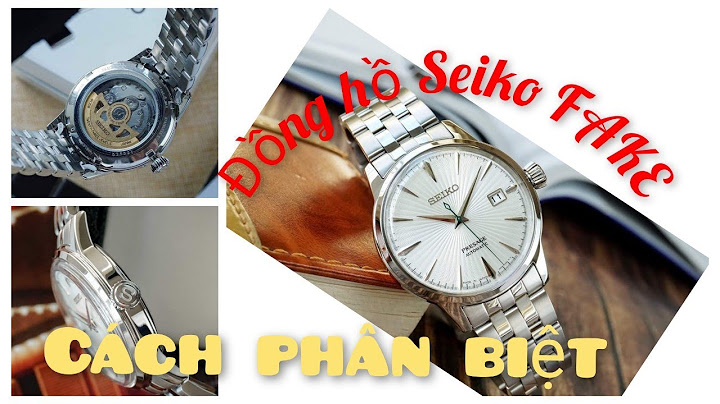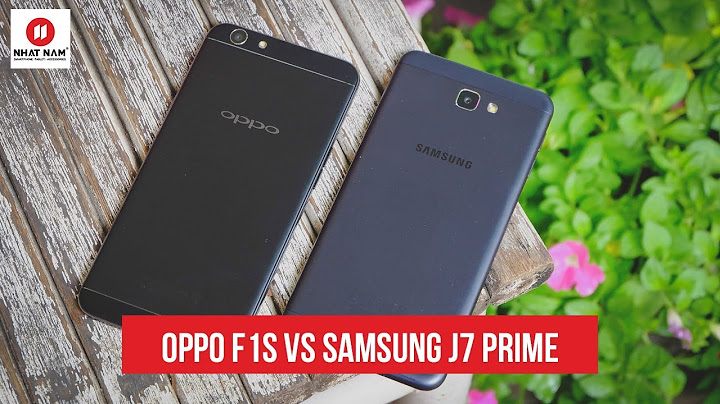Sensual and devastating in equal measure, Wong Kar-Wai’s “In the Mood for Love” captures the loneliness of unfulfilled desire better than almost any other film of the 2000s. Wong uses lush visuals, precise framing, and evocative slow-motion to illustrate both the beauty of unexpectedly falling in love and the fractured feeling of knowing it can never be consummated. Its quiet, subtle tone masks a deep well of love and pain that only occasionally shows its face amidst the many visual repetitions, riffing on ideas of adultery, heartbreak, and infatuation without a clear schema. “In the Mood for Love” operates on instinct and intuition, engendering a tender sensation that is ultimately transient but creates the illusion of permanency. It’s a love story about love itself and how it lingers in the minds of its subjects far longer than any one relationship ever can. Show   Set in 1962 Hong Kong, Chow Mo-wan (Tony Leung) and Su Li-zhen (Maggie Cheung) move into the same apartment building on the same day and become next door neighbors. Both have spouses who work late and leave them alone for long periods of time. Since the two are often alone, Chow and Su see quite a bit of each other in the halls and on the streets, with plenty of chance encounters on their way to the street noodle cart. The two independently believe their respective spouse is having an affair, but after a telling dinner conversation, both realize their spouses are having an affair with each other. In response, Chow and Su strike up a platonic relationship, playacting how their spouses met and got together, and rehearsing how they’ll confront them about their infidelity. Along the way, the two eventually develop feelings for each other and fall in love, but their respective principles and societal norms ultimately keep them apart, leaving them to pass each other by over many years. The first thing you notice about “In the Mood for Love” is its pacing, and how its both patient but ruptured. Wong employs a snapshot structure to Chow and Su’s relationship, luxuriating in small moments of connection before jumping forward in time to another moment all together. It’s the collection of these moments coupled with Chow and Su’s slow realization of their spouse’s deception that allows their relationship to at first pivot on revenge but then later become something deeper and tangible. Wong edits the moments when they’re playacting their spouse’s affair as if they’re twistingly real before dropping a hint that it’s all been pretend, creating a sense of intimacy that keeps being deferred by their own separate realities. There are a handful of blink-or-you’ll-miss-it moments that hint at when these two actually fall for each other (one that jumps to mind is the sequence when Su travels to Chow’s rented apartment to help him write that’s punctuated by whirlwind jump cuts), it’s mostly kept to suggestion, as if we know it’s inevitable far before they do. Wong gracefully employs certain techniques in the film that somehow produce both overwhelming beauty and unbearable dread. The leitmotif of “Yumeji’s Theme” (originally composed for Seijun Suzuki’s 1991 film “Yumeji”) expresses their own loneliness and their respective desire, rendering simple shots of Chow or Su eating alone some of the most heartbreaking moments in the entire film. Wong’s use of slow-motion simultaneously basks in the gorgeous splendor that is Maggie Cheung and Tony Leung and ensnares them in prisons of their own love. But it’s Wong’s use of color that stays with you longer than any one sequence ever can. The film’s breathtaking use of reds and blacks captures the suppressed intensity of their love as well as the shadows where it must stay. His cinematographers Christopher Doyle and Mark Lee Ping Bin create a colorful world of dark secrets, with bursts of flame threatening to pop out from the darkness only to eventually stay there untapped. A bitter-sweet romance. It's quiet, understated, but ultimately powerful. Beautiful photography and visuals. Brilliant acting. Caveats: not fast paced, and you've got to pay close attention at first to figure out the characters (it does cohere after a bit). I want to watch more from this director. [SPOILER ALERT: This review contains spoilers.] It's a masterpiece, a sublime tone poem that shows what cinema is capable of when it tries to do more than just tell a story. This enthralling, enigmatic, romantic drama from Asia's most influential auteur (Chungking Express) is an essay in appetite and inhibition. Although In the Mood for Love isn't in the mood for action, it dazzles with everything but. Wong denies us the satisfaction of resolution, but in sharing his mastery of cinema, and his gift for conveying mood, desire and vivid emotions, he's more than generous. In the Mood for Love has novelty value, I suppose, and plenty of pretty camera moves, but it's not really a movie you can warm to. Wong Kar-Wai's 2000 In the Mood for Love may be the best film, thus far, of the 21st Century. In just over 90 minutes, it conveys, through a voyeur-like cameras eye and spot-on, often silent, acting from Tony Leung and Maggie Cheung, an intensity of locked-up longing that's perhaps never been so captured on screen. The leads' spouses are having an affair, which brings them together unwittingly, though they too live in neighboring apartments. Initially joined by mutual heartbreak, they become joined by shared desire for one another that, in 1960s Hong Kong, is verboten. The leads are never joined through plain expression, but rather in often tense, mannered, scenes where they share a space (e.g., a cab) and communicate through just a glance or movement. And, in these scenes, the camera latches on to their subtle gestures with a yearning of its own that brings slight, soft acting full circle, giving it clear meaning. The leads encounter one another, repeatedly, in somewhat scripted, yet somehow not contrived, terms. An encounter might involve bumping in to a neighbor running a common daily (or nightly) errand. Indeed, an encounter of this sort becomes a centerpiece of the film, and the subject of perhaps the most entrancing visual sequences put to film in recent decades. In the Mood for Love is about quiet but telling action that, when enveloped by the camera, becomes loud. Wongs rich visuals tug the viewer into a muted world wrought with emotion. A feat many directors aspire toward. A feat Wong executes to perfection. Despite the gorgeous cinematography, the good acting performances and the interesting story, In the Mood for Love is cliché, predictable and even boring at times. While it's definitely not a bad movie, it's still not as good as I thought it would be. The movie is very slow moving and I assumed the pace would increase but, sadly, I was wrong. Nothing much really happens. The music gets very irritating. I think anyone could have played the roles of the main characters. The only praise I have is that it is quite artistic. I am somewhat perplexed as to why so many people adore this film. Je viens de regarder ce film et j'ai l'impression de sortir du coma. J'ai pas tout regardé à vitesse nominale mais j'ai tenu une demi-heure ainsi, ce que je considère comme un magnifique exploit. Je pensais alors que ça faisait au moins deux heures et quelque que je regardais l'air ahuri ce cinéma d'auteur du festival de Cannes et que le générique de fin libérateur allait me délivrer. Libera me domine ! mais non, le temps du cinéma d'auteur qu'il soit chinois, javanais, français ou indo-pakistanais s'écoule infiniment plus lentement et chaque minute contemplée de ce film abrutissant, des tas de neurones meurent en masse. Car la connerie tue. Ne pas s'étonner alors si les peigne-culs des festivals suivis par la presse intello-bobo en mettent partout après, se gargarisant, pontifiant et idolâtrant à tout va les archi-méga-grosses merdes de ce genre. Peu importe les comédiens dans ce cinéma de l'abrutissement, aucun ou aucune ne serait en mesure de sauver une telle affliction : pensez donc, dans le Hongkong des années 60, deux cocus qui habitent dans des cagibis se tournent autour et tentent de se renifler discrètement le fion sans jamais y parvenir. Une heure trois quarts de ça. Tu le crois ça ? non mais putain ça troue le cul ! in the mood for bore, nothing happens in this movie, the director uses slow motion in a scene buyind noodles, is pointless, is an exercise in empty style, emptiness is the theme here, i think people think this movie is art because they don't understand what true cinema is, is about emotions, technique, story, acting, music, this movie fails in all categories, half of the movie is spent showing the protagonist ass in different dresses, shots of a clock in a wall (why?) nothing means anything in this movie, is just stylish for the sake of being stylish but with no context, its repetitive, boring ant should appeal only for people that think they know art but clearly don't have a clue, like the director of this movie, it **** hard What is so good about In the Mood for Love?The construction of “In the Mood for Love” is symphonic. Each of its elements—image, sound, dialogue—contributes to a greater, cohesive whole. Even the actors are just one part of the over-all collage, navigating spaces and tableaux of objects that feel laden with symbolism in the manner of a Magritte still-life. What is the message of In the Mood for Love?With erotic cinematography, engrossing frames and hopelessly romantic characters, Wong Kar-wai's In the Mood For Love is a tale of yearning, restlessness, suffering and alienation rooted in the theme of love, loss and separation. What is the plot of In the Mood for Love?A co-production between Hong Kong and France, it portrays a man (Tony Leung) and a woman (Maggie Cheung) whose spouses have an affair together and who slowly develop feelings for each other. It forms the second part of an informal trilogy, alongside Days of Being Wild and 2046. Should I watch In the Mood for Love?With a captivating cinematography and peaceful background score, the moments that the film seeks for is beautifully natural. In The Mood For Love Kar-Wai Wong's masterpiece is a love story that every filmmaker wishes to embark upon majestically. |




















